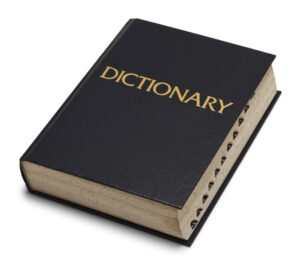Introduction
In the vast tapestry of human language, the word “free” holds a place of profound significance. It is a term that transcends linguistic boundaries, embodying concepts of liberty, generosity, and liberation.
The definition of “free” is not only a lexical entry but a reflection of human values and aspirations. In this article, we delve into the depths of the term, exploring its multifaceted meanings, its historical evolution, and its contemporary relevance.
Table of Contents
- Defining “Free”
- 1.1 Historical Roots
- 1.2 Modern Interpretations
- Semantic Variations
- 2.1 Freedom in Society
- 2.2 Economics and Free Markets
- 2.3 Gratis vs. Libre
- Cultural Significance
- 3.1 Art and Expression
- 3.2 Politics and Civil Liberties
- 3.3 Philosophy and Existential Freedom
- Frequently Asked Questions (FAQs)
- 4.1 What is the Origin of the Word “Free”?
- 4.2 How Has the Meaning of “Free” Evolved Over Time?
- 4.3 What Are Some Synonyms for “Free”?
- 4.4 How Does “Free” Manifest in Different Cultures?
- 4.5 What Role Does “Free” Play in Economic Systems?
- Contemporary Relevance
- 5.1 Digital Age and Free Information
- 5.2 Free Speech in the 21st Century
- 5.3 Challenges and Controversies Surrounding Freedom
- Conclusion

Defining “Free”
1.1 Historical Roots
The word “free” traces its etymological lineage back to Old English and Germanic origins. It evolved from the Proto-Germanic word frijaz, denoting qualities of love, nobility, and freedom. In various ancient cultures, freedom was often associated with concepts of autonomy, personal agency, and the absence of coercion.
1.2 Modern Interpretations
In the contemporary context, “free” encompasses a broad spectrum of meanings. It can refer to the absence of cost or payment, as well as the absence of constraints or restrictions. This duality makes “free” a word of significant importance in various domains, from economics to civil liberties.
Semantic Variations
2.1 Freedom in Society
“Free” is a cornerstone of democratic societies, signifying the right of individuals to express themselves, participate in governance, and pursue their aspirations without undue interference. It stands as a beacon of human rights and societal progress.
2.2 Economics and Free Markets
Economically, “free” is integral to the concept of free markets, where goods and services are exchanged voluntarily, driven by supply and demand rather than government intervention. This economic philosophy has shaped global trade and commerce.
2.3 Gratis vs. Libre
The distinction between gratis (meaning without charge) and libre (meaning without restriction) provides further nuance to the meaning of “free.” Understanding this duality is crucial in contexts where both aspects come into play, such as in open-source software.
Cultural Significance
3.1 Art and Expression
“Free” is a foundational principle in art, enabling creative expression without the constraints of censorship or commercial interests. It empowers artists to explore boundaries and challenge societal norms.
3.2 Politics and Civil Liberties
In the realm of politics, “free” is embedded in the framework of civil liberties. It encompasses the right to free speech, assembly, and religion, forming the bedrock of democratic societies.

3.3 Philosophy and Existential Freedom
Philosophically, “free” engages with questions of existential freedom – the idea that individuals possess the agency to shape their own destiny and define their purpose in life.
(FAQs)
4.1 What is the Origin of the Word “Free”?
The word “free” has ancient roots, stemming from the Proto-Germanic word frijaz, which conveys notions of love, nobility, and freedom. This term has evolved over time, adapting to the linguistic landscapes of various cultures.
4.2 How Has the Meaning of “Free” Evolved Over Time?
The meaning of “free” has undergone a significant transformation, evolving from concepts of personal agency and autonomy in ancient societies to encompassing economic, political, and philosophical dimensions in the modern era.
4.3 What Are Some Synonyms for “Free”?
Synonyms for “free” include liberated, independent, unrestricted, complimentary, and open-handed, among others. The choice of synonym depends on the context in which “free” is used.
4.4 How Does “Free” Manifest in Different Cultures?
“Free” can manifest differently across cultures, reflecting unique historical, social, and philosophical perspectives. It may be interpreted through customs, laws, and societal norms, influencing how freedom is understood and practiced.
4.5 What Role Does “Free” Play in Economic Systems?
In economic systems, “free” is central to the concept of free markets, advocating for voluntary exchange of goods and services without undue government intervention. This approach fosters competition, innovation, and economic growth.
Conclusion
The word “free” stands as a linguistic cornerstone, encapsulating a myriad of meanings and interpretations that have shaped societies, economies, and philosophies throughout history. From its ancient roots in notions of love and freedom to its contemporary relevance in economic, political, and cultural contexts, “free” has evolved into a concept of profound significance.
In today’s interconnected world, the duality of gratis and libre reminds us that freedom encompasses not only the absence of cost but also the absence of constraints. It is a principle that underpins democratic societies, fuels economic systems, and empowers individuals in their pursuit of self-expression and self-determination.